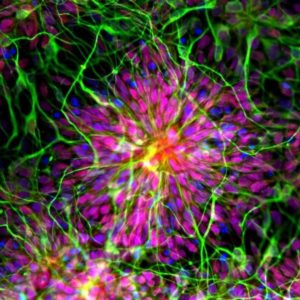OxDARE is a collaboration of people championing Oxford’s Dementia and Ageing research. Our purpose is to accelerate the discovery of new treatments for preventing and managing the diseases that cause dementia.

The OxDARE team
OxDARE provides a network for researchers and clinicians, many of whom are involved in the Older Adults and Dementia research theme within NIHR Oxford Health Biomedical Research Centre.
The OxDARE team is based in the University of Oxford’s Department of Psychiatry, located at the Warneford Hospital. We foster collaboration between OxDARE members and produce the communications and events that create engagement between researchers and the public.
OxDARE research is conducted in a variety of settings, including through the Department of Psychiatry the Clinical Research Facility, Oxford Centre for Human Brain Activity, the Wellcome Centre for Integrative Neuroimaging (WIN) and the NIHR Clinical Research Network.
OxDARE works closely with Alzheimer’s Research UK Thames Valley, the Oxford Brain Health Clinical Trials Unit and the Drug Discovery Alliance in relation to research and public engagement.
The OxDARE Network
OxDARE also includes members of the public who choose to keep up-to-date with the latest findings from the University of Oxford and the wider world of dementia research. As well as receiving a regular newsletter, Friends of OxDARE are kept up-to-date about a range of educational events during the year to further understanding of brain health. Another of our main responsibilities is making our members aware of the many local opportunities to take part in dementia and ageing research.



